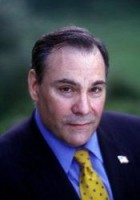Fracking Debate Highlighted at Pace University Forums

The hot-button issue of vertical hydraulic fracturing to extract natural gas in the upstate Marcellus Shale may be stalled in moratorium, but that didn’t stop Pace University from hosting two separate forums on the issue last week.
On April 9, energy and environmental leaders gathered at the Pleasantville and New York City campuses and were linked by video conference to address issues such as the science, economics, regulations, ethics and environmental consequences of the practice.
The following afternoon, fracking opponents listened to a panel of three experts at Pace’s Kessel Student Center in Pleasantville who explored strategies to accelerate the development of alternative energy and to ban fracking. That event was organized by the Pleasantville-based WESPAC Foundation.
The panelists addressed the health and economic impacts of fracking and expressed concern that if the energy industry is allowed to drill upstate it could delay efforts to encourage development of alternative sources.
“Energy independence does not mean substituting Middle East oil for hydro-fracking for natural gas,” said NYU Clinical Associate Professor of Social Sciences Dr. Lisa DiCaprio, one of Tuesday’s three panelists. “It means looking at alternatives to all fossil fuels.”
Panelist Ellen Weininger, education outreach coordinator for Grassroots Environmental Education, a non-profit organization that reaches out to citizens about the impacts of environmental exposures, said “public health is the single most important issue” and is the reason why fracking should be banned in New York State.
In Pennsylvania, there have been reports that the drilling contaminated wells and deteriorated air quality caused by the sharp increase in truck traffic. Similar problems could happen in upstate communities, Weininger said.
Ecomonist Dr. Jannette Barth said the energy industry has also misled the public about the economic benefits. She said only about 3.7 jobs are created for every $1 million invested by natural gas companies who engage in fracking as opposed to 9.5 and 9.8 jobs, respectively, for wind and solar.
However, Andrew Revkin, the panel moderator on Monday night in Manhattan and who writes The New York Times DotEarth blog, said the biggest challenge in the fracking debate is getting accurate information to the public. He said so far the issue has been debated by interests “on the fringes,” which ignores valid points on both sides.
Revkin said fracking opponents have wrongly stated that the industry is inherently dangerous and can’t be regulated while some natural gas companies have hurt themselves by taking shortcuts and failing to address all safety issues. He maintained, however, that fracking does not have to imperil the environment.
“There’s a clear path ahead on this,” Revkin said. “There’s a way to regulate this.”
Mark Boling, president of V+ Development Solutions at Southwest Energy, said at the Monday forum that it has been difficult in devising effective regulations in the current environment. With air emissions, for example, the levels are known but there has been no agreement regarding acceptable levels, he said.
Assemblyman Robert Castelli (R-Goldens Bridge), who attended the WESPAC forum, said there are still too many unknowns regarding the impacts on health and the environment for him to support lifting the ongoing moratorium. He said more research is needed before he would feel safe voting for fracking.
“As far as the moratorium is concerned, I’m quite happy that that moratorium remains in place,” Castelli said. “It can remain in place forever as far as I’m concerned. I’m not naive but certainly it will be dealt with. We still need to study a bit more.”
Dr. Frances Delahanty, who is currently teaching an “Introduction to Peace and Justice” at Pace and helped organize last Tuesday’s event, said there is nothing to convince her yet that fracking can be properly regulated.
“The state is cutting back on regulators and personnel and there are very few regulators and, of course, once (fracking) happens you can’t undo it,” she said.
